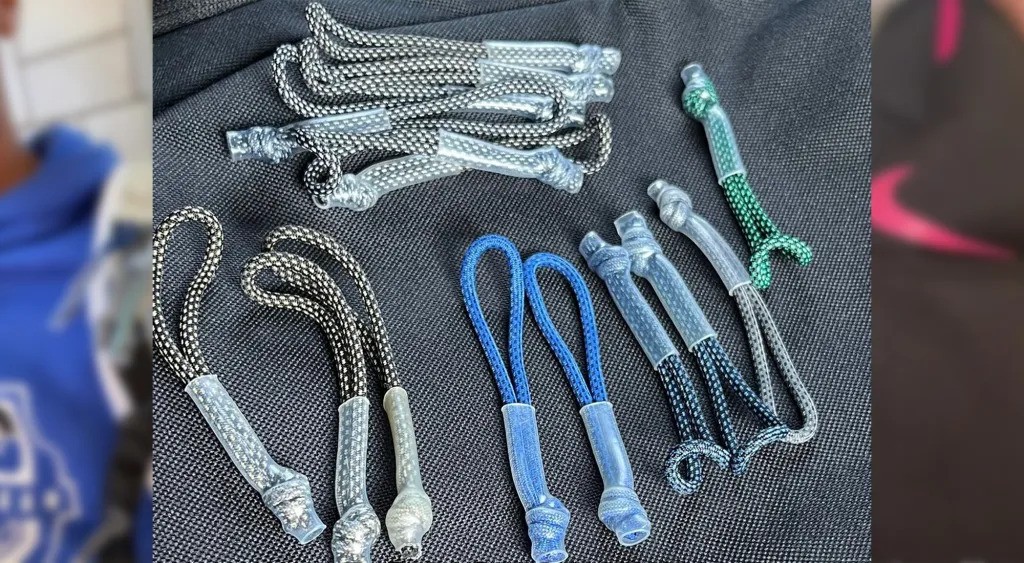CANADA NEWS – The viral trend of stealing zipper pulls, especially from Nike Elite Hoops backpacks, has captured the attention of social media platforms like TikTok, Instagram, and YouTube. Videos showcasing collections of these small, dangly cords attached to zippers have amassed millions of views. What began as an online trend has spilled over into real life, with teens across various schools participating in this seemingly harmless act. However, for some students, like Elijah Castillo from Toronto, this trend has had a much more personal and upsetting impact. Elijah’s experience serves as a sobering reminder that what might seem like harmless fun online can have real consequences when it enters the offline world.
Elijah, a 16-year-old student from Albert Campbell Collegiate Institute in Toronto, initially found the zipper-pull trend amusing when he saw it on TikTok. However, his perspective shifted dramatically when he became a victim of the trend himself. While walking through his school, someone sneaked up behind him and stole the zipper pulls from his brand-new Nike Elite Hoops backpack, a birthday gift from his mother. Although the theft might seem trivial to some, Elijah described feeling “mad and upset,” especially since the backpack held sentimental value. The bag was still functional without the cords, but the emotional impact of the theft lingered.
The popularity of this trend has raised concerns among students and parents alike. Some teens have even turned the trend into a small business, stealing zipper pulls and then selling them to other students for profit. One student at Elijah’s school admitted to CBC Kids News that they steal zipper pulls and sell them for cash. This behavior, while seemingly playful to some, has led to growing frustration among victims like Elijah. He explained that if the theft were truly a prank, the cords would be returned. Instead, the cords are often kept as trophies or sold, leaving students like Elijah feeling violated.
Interestingly, not all students participating in the trend see it as malicious. One student referred to the act of stealing zipper pulls as “trolling” or harmless joking. For them, it was simply a way to have fun and be part of a viral sensation. Yet, even this student, who once found joy in the trend, has stopped wearing their Nike Elite backpack to school to avoid becoming a victim. The contradiction between enjoying the trend and avoiding its consequences illustrates the blurred lines between fun and harm in this viral movement.
The emotional impact of the trend is not lost on students like Elijah. After having his zipper pulls stolen, he now takes precautions, such as wearing his backpack on the front to protect the remaining cords. Though he has tried to move on, the frustration lingers. Elijah expressed his disappointment, urging would-be thieves to reconsider their actions. “Stop taking people’s zippers,” he said. “They spent hard money to get this bag. When it happens to you, you’ll be very upset or mad, and then you’re gonna regret it.” His message resonates with the broader issue of respecting others’ belongings, especially when the thefts are motivated by a viral trend.
Despite the growing prevalence of the zipper-pull thefts in schools, officials at the Toronto District School Board (TDSB) claimed they were unaware of the issue. Shari Schwartz-Maltz, a spokesperson for the board, emphasized the importance of maintaining a positive school environment. She encouraged students who are affected by the trend to report it to their principals. According to the TDSB’s Caring and Safe Schools policy, schools should promote positive behaviors and create an atmosphere where students feel safe, included, and accepted. The zipper-pull trend, while seemingly trivial, poses a challenge to these ideals.
Ultimately, the zipper-pull theft trend highlights a larger issue about the intersection of online trends and real-world consequences. What may seem like a lighthearted joke in a viral video can have lasting emotional effects on those who experience it firsthand. Elijah’s story underscores the importance of empathy and respect for others’ property, as well as the need for schools to foster a culture of kindness, even in the face of fleeting online fads. As the trend continues to gain traction, it remains to be seen how schools and students will respond to mitigate its negative effects.
